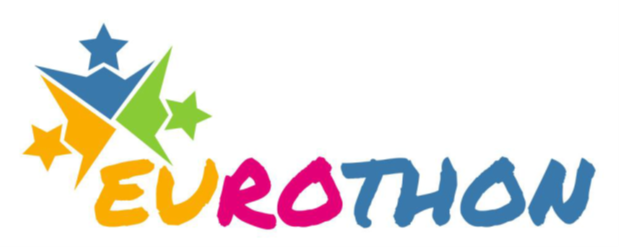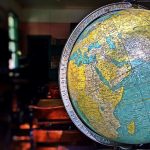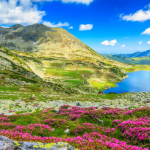Belgium – History
The history of Belgium extends before the founding of the modern state of that name in 1830, and is intertwined with those of its neighbors: the Netherlands, Germany, France and Luxembourg. For most of its history, what is now Belgium was either a part of a larger territory, such as the Carolingian Empire, or divided into a number of smaller states, prominent among them being the Duchy of Brabant, the County of Flanders, the Prince-Bishopric of Liège and the County of Luxembourg. Due to its strategic location and its history as a country of contact between different cultures, Belgium has been called the “crossroads of Europe”; for the many armies fighting on its soil, it has also been called the “battlefield of Europe”[1] or the “cockpit of Europe”.[2] It is also remarkable as a European nation which contains, and is divided by, a language boundary between Latin-derived French and Germanic Dutch.
Belgium’s modern shape can be traced back at least as far as the southern core of the medieval Burgundian Netherlands. These lands straddled the ancient boundary of the Scheldt that had divided medieval France and Germany, but they were brought together under the House of Valois-Burgundy, and unified into one autonomous territory by their heir Charles V, Holy Roman Emperor, in his Pragmatic Sanction of 1549. The Eighty Years’ War (1568–1648) later led to the split between a northern Dutch Republic and the Southern Netherlands from which Belgium and Luxembourg developed. This southern territory continued to be ruled by the Habsburg descendants of the Burgundian house, at first as the “Spanish Netherlands”. Invasions from France under Louis XIV led to the loss of what is now Nord-Pas-de-Calais to France, while the remainder finally became the “Austrian Netherlands”. The French Revolutionary wars led to Belgium becoming part of France in 1795, bringing the end of the semi-independence of areas which had belonged to the Catholic church. After the defeat of the French in 1814, a new United Kingdom of the Netherlands was created, which eventually split one more time during the Belgian Revolution of 1830–1839, giving three modern nations, Belgium, the Netherlands, and Luxembourg.
The ports and textile industry of Belgium were important back into the Middle Ages, and modern Belgium was one of the first countries to experience an Industrial Revolution, which brought prosperity in the 19th century but also opened a political dichotomy between liberal businessmen and socialist workers. The king set up his own private colonial empire in the Belgian Congo, which the government took over after a major scandal in 1908. Belgium was neutral but its strategic location as a pathway to France made it an invasion target for Germany in 1914 and 1940. Conditions under the occupation were severe. In the postwar period Belgium was a leader in European unification, as a founding member of what has become the European Union. Brussels is now host to the headquarters of NATO and is the de facto capital of the European Union. The colonies became independent in the early 1960s.
Politically the country was once polarized on matters of religion and, in recent decades, it has faced new divisions over differences of language and unequal economic development. This ongoing antagonism has caused far-reaching reforms since the 1970s, changing the formerly unitary Belgian state into a federal state, and repeated governmental crises. It is now divided into three regions: Flanders (Dutch-speaking) in the north, Wallonia (French-speaking) in the south, and bilingual Brussels in the middle. There is also a German-speaking population along the border with Germany that was granted to Prussia in the Congress of Vienna in 1815 but added to Belgium following the 1919 Treaty of Versailles following World War I. German is the third official language of Belgium.




